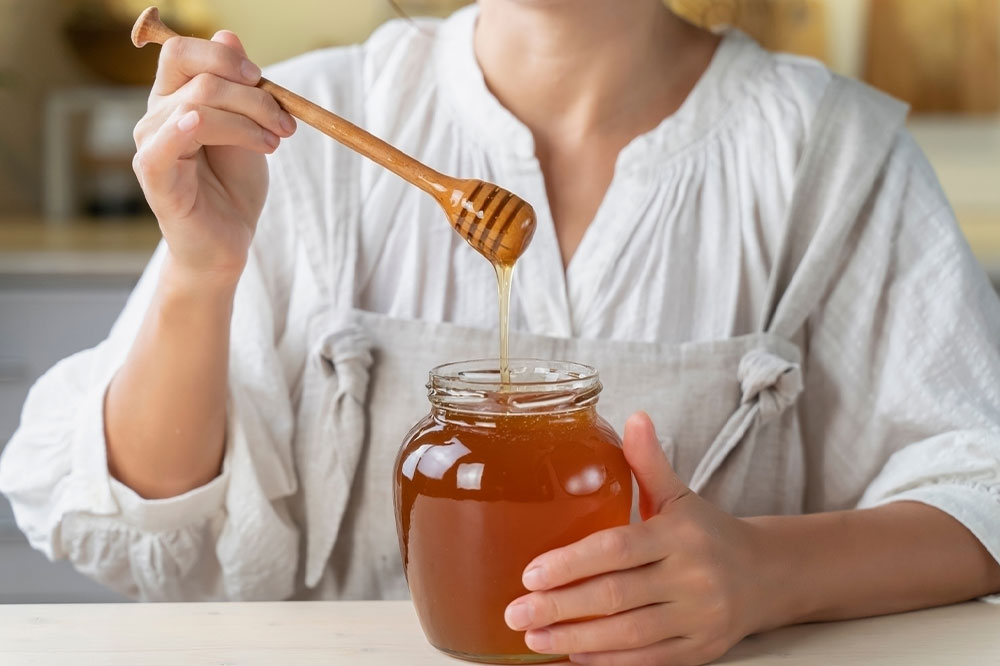14 Home Remedies for Cold, Flu, and Nasal Congestion

Viruses are generally responsible for colds and flu. Taking the recommended medications as directed by a doctor, and strengthening one’s immune system with the proper nutrition is crucial to treat the flu. Runny nose, congested sinuses, sore throat, coughing, headaches, body pains, fevers, and chills are common flu symptoms. While contracting a virus may be inevitable, there are numerous at-home treatments for colds, the flu, and stuffy noses. Here are some of them:
Home remedies
Certain home remedies have a monumental impact on a person’s health. Nutritious foods and natural remedies can help boost the immune system to fight off viruses and provide relief against cold and sore throats. Popular choices include:
Chicken soup
A warm bowl of chicken soup with vegetables can help relieve nasal congestion and slow down the movement of white blood cells called neutrophils in the body. Slowing down their movement allows the neutrophils to focus on areas of the body that need the most infection-fighting.
Ginger
Ginger is a known anti-inflammatory that can help reduce flu symptoms, such as nausea. For best results, add a few slices of fresh ginger to boiling water to make ginger tea. Consume it while hot.
Honey
Honey has many antibacterial and antimicrobial properties to help one manage flu symptoms better. Mix it into lemon or ginger tea for easy consumption. Children under the age of one should not be given honey, as it contains botulinum spores, which infant immune systems may be unable to fight off.
Garlic
Due to its allicin content, garlic is a rich source of antimicrobial compounds. It can help boost the immune system and reduce the effects of cold and flu on one’s body. Add it to food, or look for a quality garlic supplement.
Oranges
Oranges and other citrus fruits such as grapefruits, lemons, and limes are great sources of vitamin C, a powerful antioxidant. These can help boost the immune system to fight off the infection faster. One can eat fresh fruits or drink warm lemon tea with honey to reduce phlegm.
Probiotics
Probiotics are good bacteria that keep the gut healthy. They have a positive impact on the immune system as well and can reduce the occurrence of respiratory illnesses. Sources of probiotics include yogurt, sauerkraut, miso, tempeh, etc.
Echinacea
Echinacea is a rich source of flavonoids. It is popularly used in Native sciences to treat infections, reduce inflammation and boost the immune system. According to certain recent studies, consuming echinacea herb and root in the form of tea may help alleviate symptoms of the common cold, especially in children.
Other infection-fighting foods
Plenty of other foods can help relieve symptoms of cold and flu. Bananas and rice can help soothe an upset stomach, blueberries can help lower fever and reduce aches and pains, and chili peppers can fight nasal congestion. Also, onions may help clear bronchitis due to their phytochemical content, and carrots can help fortify the immune system due to their beta-carotene content.
Rub a menthol salve
Using a small amount of menthol salve or vapor rub is one of the most popular home remedies against cold and flu. It helps fight nose congestion and reduce coughing. When made of ingredients like menthol, eucalyptus, and camphor, the salve may also have numbing and calming properties that can help relieve the pain of a constantly irritated nose. Do not apply this salve inside the nose.
Saltwater rinsing
Saltwater rinsing, also known as saline lavage or nasal irrigation, is a popular traditional method of opening up and hydrating the nasal passage when it is congested. It also removes viruses and bacteria from the nose. However, it is important to do so safely. Speak with a doctor before using nasal irrigation therapy.
A popular saltwater rinse recipe uses ¼ teaspoon salt and ¼ teaspoon baking soda in 8 ounces of distilled, sterile water or boiled and cooled water. A bulb syringe or a nasal irrigation kit is used to squirt water into the nasal passage. Follow the healthcare provider’s instructions when trying this at home.
Gargling
To gain relief from a sore throat, one can try to gargle with warm salt water. Simply mix ½ a teaspoon of salt in a cup of warm water, and gargle with it for temporary relief. One may also try other gargling techniques using an astringent gargle with tea and honey, which can help relieve irritation down the throat.
Using a hot pack around the sinus
Take a damp washcloth and heat it for 55 seconds in the microwave. Apply it around the sinuses for relief from nasal congestion.
Sleep well
Getting the right amount of rest, especially during the cold and flu season, can help keep the immune system functioning optimally. If one has already caught the flu, keep the body warm and rested, as this will help direct the body’s energy reservoirs toward fighting the infection.
Sleeping with an extra pillow under one’s head can also help relieve nasal congestion faster by helping the sinuses to drain at an angle.
Take a steamy shower
Taking a steamy shower or bath can help open up the nasal passages and moisturize the nose. Add some Epsom salt to the bath to relieve body aches, or a few drops of essential oils, such as eucalyptus, lavender, or orange, for a calming effect. If one is feeling dizzy due to the flu, take a chair to the bathroom to sit in, while running a hot shower.
Several of these remedies have been used by numerous people at home as a supplement to the treatment of colds, flu, and viruses such as COVID. These viruses can last for about three weeks, with the worst of the symptoms lasting for 2-3 days. If one experiences these symptoms for 10 days or more or suffers from other complications or comorbidities, it is time to visit the doctor.








